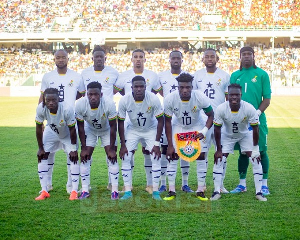In an apparent response to a Bank of Ghana (BoG) directive, issued in October last year to commercial banks, to abolish banking charges, which the Central Bank saw as unjustifiable, Standard Chartered Bank has introduce a new charge to cream back what it has lost in complying with the directive.
A notice at the banking hall of the High Street Branch of the bank reads: To our dear valued customers: Kindly note that savings withdrawals beyond four (4) times a month (excluding ATM withdrawals, attract a charge of ? 40,000 for that month. The use of ?dear? and ?valued? in the salutation is a redundancy that could either be an error or an attempt to flatter savers whose access to their money is now being curtailed. Again, the exception made to withdrawals from Automatic Teller Machines (A.T.M.) gives the impression that ATM withdrawals are free, when in actual fact there is a ?2,000 per transaction fee on withdrawals from ATMs.
It is expected that, by abolishing the fees stated in the directive, commercial banks would lose billions of cedis in service revenue.
The BoG directive, issued following consultations with the banks, and on the strength of a mutual agreement, was meant to curb excessive, and in some instances unnecessary charges imposed on financial services rendered by the commercial banks, and to promote a culture of savings and demonetize the economy. The directive requested the banks to eliminate the minimum initial deposit requirement, raise deposit rates, abolish account closure and account maintenance fees, reduce the Commission on Turn Over by charging flat rates rather than percentage of volume of transaction, among others.
Public Agenda can confirm that most of the banks are yet to fully comply with the directive at the time of filing this report. The few who have, have approached it in a ?choose and pick fashion?, scrapping in most cases, their account closure, and account maintenance fees, and adjusting their commission on turn over in line with the directive. Most banks still maintain their minimum initial deposit requirement, deposit rates are predominantly the same as they were since the directive.
The new savings withdrawal charge imposed on withdrawals in excess of four times in a month is likely to induce large withdrawals at a time and make potential savers keep their excess money at home. That will defeat the directive?s intended objective of making savings attractive and for that matter mobilizing domestic savings for onward lending to financially constrained sectors of the economy.
StandChart?s fees on its services appear to be the highest in the banking sector. It charges ?15,000 as salary processing fee on salaries paid through any of their branches. Barclays charges ?10,000, and SG SSB - ?10,000. Ghana Commercial Bank does not charge for processing workers salaries. According to the bank, workers? salaries sent through the bank, are strictly speaking deposits, and so there is no basis to charge processing fees. StandChart?s lending rate, despite the cut in BoG?s prime rate to a record low of 18.5%, is at 27.5%, Barclays ? 25.5%, and Ghana Commercial Bank ? 26.5%. A source at StandChart, who spoke to this reporter on condition of anonymity, said the bank?s management is not prepared to implement the directive to the letter. According to her, the bank has negotiated with the BoG on some of the issues in contention, and is implementing those it is comfortable with. The source further explained that, the new savings withdrawal charge is meant to discourage savers who treat their savings account as if they were current. Financial analysts have blamed the Central Bank for being ineffective in its supervision of the commercial banks, a situation which according to them constitute a carte blanche for the banks.
Officials of the commercial banks are tight lipped about their banking policies and tariffs. Most are not open and truthful about their actual charges. The figures being given out, depend on who is asking for them. Only SG SSB and StandChart of five banks visited have published their banking tariffs.
Business News of Friday, 28 May 2004
Source: Public Agenda
















